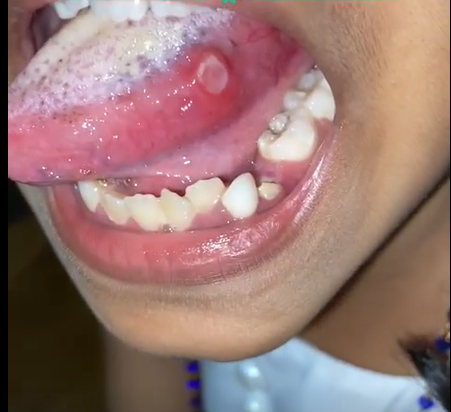
It starts as a small, seemingly harmless spot—a little ulcer on your tongue, the inside of your cheek, or maybe on your gums. It’s easy to ignore. You might blame it on biting your cheek while eating, a reaction to something you ate, or just one of those minor irritations that come and go. You rinse with salt water, avoid spicy foods, and wait for it to heal. Most of the time, it does. But sometimes, that small sore is your body’s way of sending a critical message—one that, if ignored, could have life-altering consequences.
For adults over 50, mouth sores are common. Years of dental work, medications that cause dry mouth, natural changes in oral tissues, and even dietary habits can lead to occasional ulcers or irritations. But when a sore doesn’t heal within two weeks, or appears without an obvious cause, it might be more than a minor annoyance. It could be a warning sign of a serious underlying condition—including oral cancer.
Oral cancer is one of the most overlooked and under-discussed cancers among older adults. It often begins subtly, with symptoms that are easy to dismiss. A persistent sore, a red or white patch that doesn’t go away, unexplained bleeding, or even a feeling of numbness in the mouth can all be early signs. Because these symptoms are painless in the early stages, many people ignore them until the cancer has advanced, making treatment more difficult and reducing survival rates.
The link between mouth sores and oral cancer isn’t the only concern. Sores that don’t heal can also indicate autoimmune conditions like lupus or Crohn’s disease, which can first manifest in the mouth. In other cases, persistent ulcers may signal a severe vitamin deficiency, such as a lack of B12, iron, or folate—common issues in older adults due to changes in diet and nutrient absorption. Even more concerning, mouth sores can sometimes be a sign of a weakened immune system due to HIV or other underlying illnesses.
What makes mouth sores particularly dangerous is their location. The mouth is a gateway to the body, and any abnormality here can affect overall health. An untreated infection can spread, leading to systemic issues like sepsis. For those with diabetes, mouth sores can heal slowly and become infected, creating a cycle of inflammation and poor blood sugar control that’s hard to break. In rare cases, a sore that won’t heal can be a sign of a blood disorder or even leukemia.
Despite these risks, many people avoid talking about mouth health. There’s a sense that problems in the mouth are private, embarrassing, or simply not as urgent as other health issues. This silence can be deadly. Oral cancers are often diagnosed late because patients don’t seek help until the sore is large, painful, or interfering with eating and speaking. By then, the cancer may have spread to the lymph nodes or other parts of the body.
The good news is that oral health is largely manageable with attention and care. Regular dental check-ups are crucial—not just for cleanings, but for oral cancer screenings. Dentists are trained to spot abnormalities that might be invisible to the untrained eye. For those who wear dentures, ill-fitting appliances can cause chronic sores that increase the risk of cancerous changes over time. Adjusting dentures or switching to better-fitting options can prevent these issues.
Lifestyle factors also play a role. Tobacco use, heavy alcohol consumption, and prolonged sun exposure (which can lead to lip cancer) are significant risk factors. Human papillomavirus (HPV) is increasingly linked to oral cancers, particularly in the back of the throat and base of the tongue. Practicing safe habits, using lip balm with SPF, and staying updated with HPV vaccinations if recommended can reduce these risks.
So what should you do if you have a mouth sore that won’t heal? Don’t panic—but don’t ignore it, either. Schedule an appointment with your dentist or doctor. Describe the sore clearly: how long it’s been there, whether it’s painful, and if it’s changed in size or appearance. They may recommend a biopsy to rule out cancer or other serious conditions. Catching problems early can make all the difference.
Your mouth is a mirror reflecting your overall health. Sores, patches, or unexplained changes deserve attention and care. That little ulcer might be nothing—or it might be your body’s way of asking for help. Listen to it. Your health, and possibly your life, could depend on it.